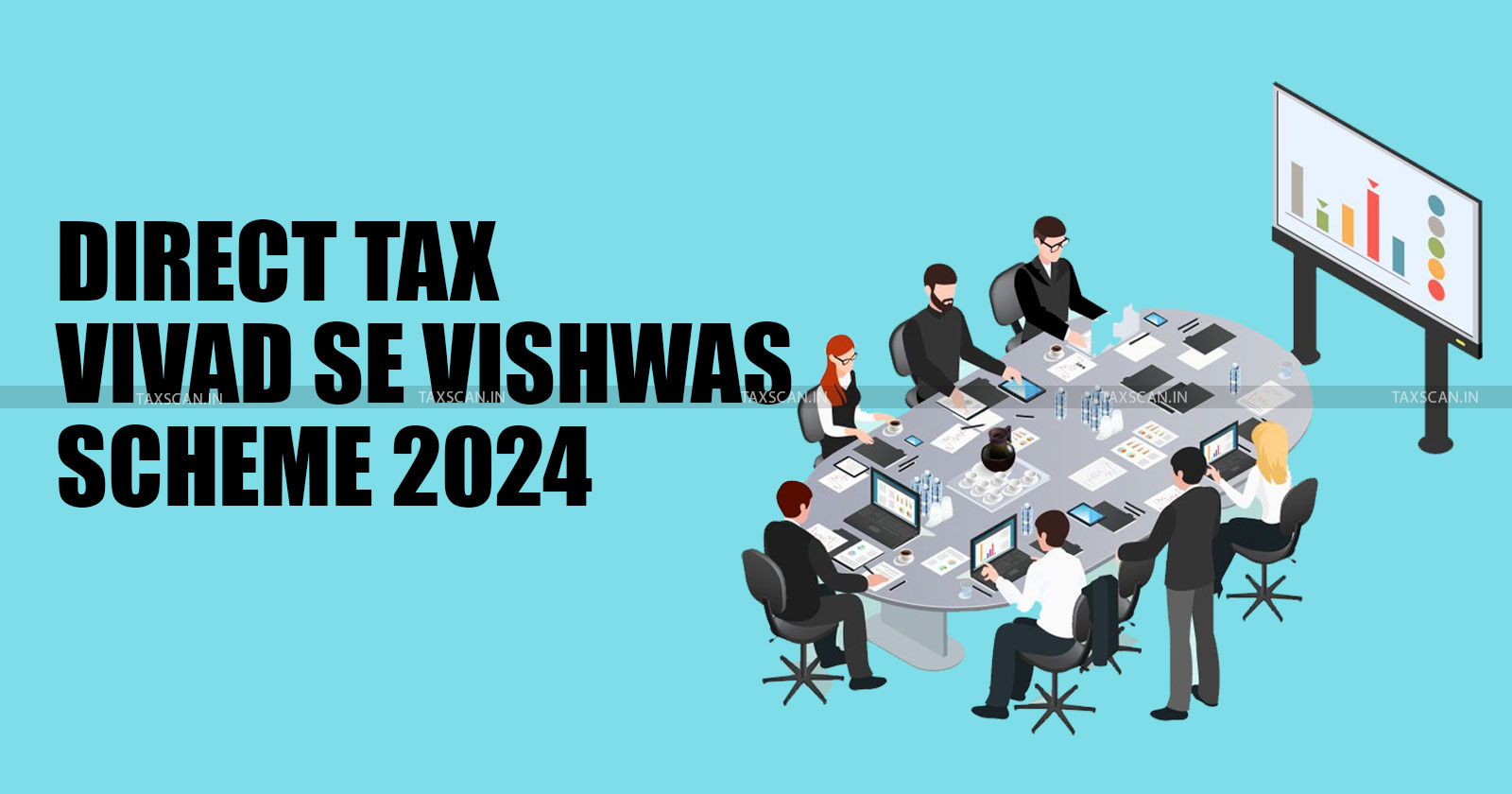CBDT issues Guidance Note on DTVSV Scheme, 2024 [Read Circular]
The primary objective of the DTVSV Scheme is to reduce tax disputes, expedite revenue collection, and provide relief to taxpayers from prolonged litigation.

CBDT – Guidance Note – DTVSV Scheme – 2024 – Taxscan
CBDT – Guidance Note – DTVSV Scheme – 2024 – Taxscan
The Central Board of Direct Taxes (CBDT) has issued Circular No. 12 of 2024, which contains a comprehensive Guidance Note on the Direct Tax Vivad se Vishwas (DTVSV) Scheme, 2024.
This scheme, introduced under Chapter IV of the Finance (No.2) Act, 2024, aims to facilitate the resolution of pending income tax litigation.
Key points from the guidance note include:
1. Eligibility: The scheme applies to disputes where an appeal, writ petition, or special leave petition was pending as of July 22, 2024. It also covers cases where objections were filed before the Dispute Resolution Panel (DRP) and no directions were issued by the DRP by that date. However, cases involving undisclosed foreign income or assets, assessments based on search operations, and certain other specific circumstances are not eligible under the scheme.
Income Tax Mastery: Unleash Your Expertise with us
2. Payment Schedule: The scheme provides a table of payable amounts based on when the declaration is filed. For instance, if the declaration is filed by December 31, 2024, the taxpayer is liable to pay 100% of the disputed tax (for new appellants) or 110% (for old appellants). After January 1, 2025, these amounts increase slightly. For disputes related to interest, penalties, or fees, the payable amounts are lower.
3. Filing Process: Taxpayers are required to file a declaration in Form-1, following which the designated authority will issue a certificate in Form-2 specifying the payable amount. The taxpayer must make the payment and submit the details in Form-3, after which the authority will confirm the settlement in Form-4.
4. Non-eligibility: Specific cases, such as those involving search assessments or disputes regarding foreign income or assets, are not eligible for resolution under the scheme. Additionally, disputes where prosecution has been initiated or where the assessment was based on information from agreements under sections 90 or 90A of the Income Tax Act are excluded.
Income Tax Mastery: Unleash Your Expertise with us
5. Settling Penalty Appeals: The scheme allows taxpayers to settle penalty appeals along with the related tax disputes. However, taxpayers cannot settle penalty appeals alone while continuing to contest the associated tax issue.
6. Immunity from Prosecution: Once a dispute is settled under the DTVSV Scheme, immunity from prosecution is extended not only to the taxpayer but also to company directors or firm partners involved in the same dispute.
7. Withdrawal of Appeals: Taxpayers must withdraw any pending appeals to avail themselves of the benefits of the scheme. Proof of withdrawal needs to be submitted along with the intimation of payment.
This guidance aims to clarify various provisions under the DTVSV Scheme, 2024, and provides answers to frequently asked questions to assist taxpayers in effectively utilising the scheme.
To Read the full text of the Order CLICK HERE
Support our journalism by subscribing to Taxscan premium. Follow us on Telegram for quick updates


